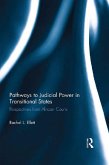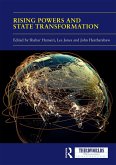In recent decades, international legal constraints have shifted far beyond the national border. International lenders' structural adjustment programs require states to slash budgets, privatize public enterprises and cut pensions. Trade agreements have shifted from locking in low tariffs to forbidding policies that today's rich countries used to climb up the developmental ladder. This suite of neoliberal policies has been labeled the "golden straitjacket" for their supposed promise of unlocking economic growth. [NP] 'Judge Knot' explores a corollary to the straitjacket: investor-state dispute settlement (ISDS), where foreign investors can sue host states out of national courts before transnational tribunals over government regulation. Since 1990, corporations have launched hundreds of cases against states over environmental conservation, financial stabilization and public service provision. In an era of Donald Trump, Brexit, Bernie Sanders, and Jeremy Corbyn, criticism of this system has grown enormously. Yet meaningful reform has been difficult. Even though neoliberal economics is on the wane, its legal underpinnings remain attractive to the corporations that demand investment law and the arbitrators who supply it.
Building off of an unprecedented set of interviews with the arbitrators who actually decide the cases, the interdisciplinary 'Judge Knot' brings together the best of political science, law and development economics scholarship to offer a historical institutionalist account of investment arbitration in an era of unprecedented judicialization of international affairs. The book offers concrete alternatives to ISDS that leverage what works about the system and discard what doesn't, so that international law can be more supportive of democracy and development goals.
Building off of an unprecedented set of interviews with the arbitrators who actually decide the cases, the interdisciplinary 'Judge Knot' brings together the best of political science, law and development economics scholarship to offer a historical institutionalist account of investment arbitration in an era of unprecedented judicialization of international affairs. The book offers concrete alternatives to ISDS that leverage what works about the system and discard what doesn't, so that international law can be more supportive of democracy and development goals.
Dieser Download kann aus rechtlichen Gründen nur mit Rechnungsadresse in A, D ausgeliefert werden.









